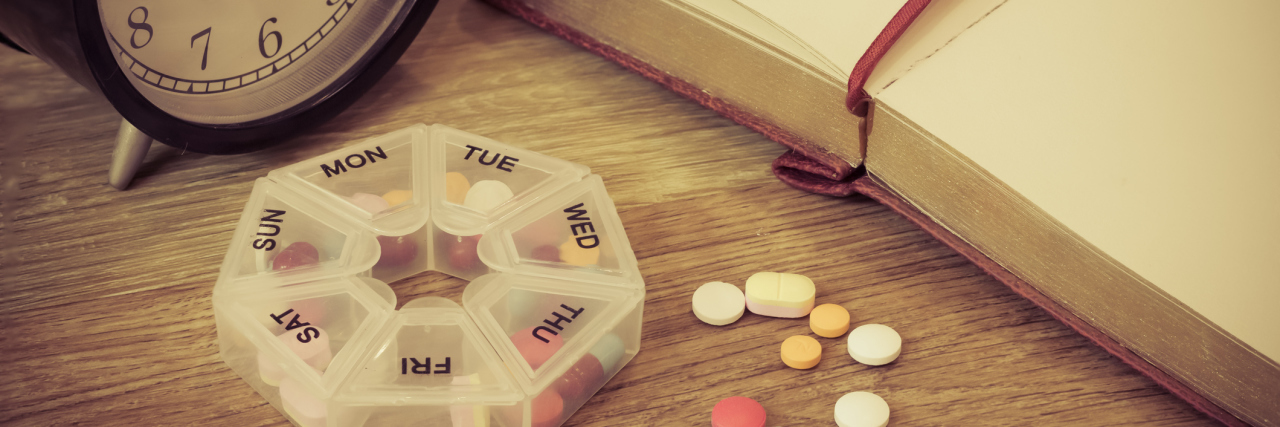Approximately one in five adults in the U.S. experiences mental illness in a given year and one in five youth ages 13 to 18 experiences a severe mental disorder at some point during their life.
I am the one in five.
At the end of my junior year of high school, I sought out counseling and treatment. It took me what I consider the hardest year of my life to make me realize I desperately needed to take my life back and it could not wait any longer. I was diagnosed with generalized anxiety disorder (GAD) and major depressive disorder (MDD) and have been prescribed five different medications over the years.
My anxiety began to develop during my childhood after a family crisis and my depression soon followed, beginning in middle school. At that times, I knew there was something very unhealthy about the way I felt, but I wasn’t prepared to spend the rest of my life analyzing where my emotions and behaviors were coming from and then how to overcome them.
As I got older, my mental illness became worse and I convinced myself that once my life circumstances changed, I would be happy. I was constantly waiting for some “change” to alter everything. Waiting for a convenient time in life to be happy or content with where I was at, setting myself up to be disappointed and preventing me from taking an active role in combating my struggles. I’ll never know what my life might bring me, so I need to know how to cope with the unpredictable — the very thing that scares me most.
Although I was never against psychiatric medication, I believed that I could conquer my illnesses without them. And that may very well be true, but at the time I entered counseling I was at the lowest point in my life. I was accomplishing so much in school and extracurricular activities, but I was so unhappy with myself and my life. I felt like I failed myself because I couldn’t control my thoughts or feelings. I always thought I could be doing something more to get better, so I mentally punished myself for not actually getting better.
There is a stigma around being on medication. I don’t think people understand what it actually does. They often just assume that because it’s prescribed for mental illness that the person must be “crazy,” helpless or unstable. But this isn’t true.
Honestly, I first considered adding medication to my treatment plan to numb myself. I just wanted so desperately to not have to feel anything, after feeling so much for so long. However, I soon realized that I needed to use the medication as a stepping stone that would get me to a place where I wanted to take part in improving my life. The first few months on my medication made a world of difference for me and I never regretted my decision to go on them. The worst part of the process is finding the right medication and dosage by trial and error, which can mean weeks of side effects until you find the right one, but communicating with your psychiatrist is crucial.
Two years later I got off of them because I never intended them to be long term, but just as something to help me get back on my feet. I seemed to be able to manage my emotions during the following months until I saw a rapid decline. I was at a different “low” this time. I didn’t hate myself and my life like years prior, but instead, I felt like I lost myself and withdrew completely from society. After a year off of medication, I ended up going back to counseling and back on meds. I started to feel like I failed again because I couldn’t manage to go more than a year without having to take medication to deal with my own emotions.
At first, I only told the closest people to me about my treatment and kept it that way for a very long time because it made me feel different from my peers. Eventually I decided to talk freely about it because I’m still me whether I take medication or not. I also want to help educate others about mental illnesses and make others comfortable enough to talk about their own struggles. We are all human and can relate to each other a lot more than we realize.
Always having my meds on my desk is a daily reminder that I rely on these pills to make me feel “normal.” At first, I always hid the bottle when I had guests over, but eventually I didn’t bother hiding them because there is no reason I should feel shame about it. I do not let the pills define me and anyone that defines me by them does not have a place in the support system I’ve built. Sometimes I still feel like my meds have a control over my life, but the way my quality of life has improved because of them is extraordinary. I am proud to be able to say I have finally taken charge of my health.
Thinkstock photo via whyframestudio

